Energy Forum 55: Energy in refrigeration and air conditioning systems
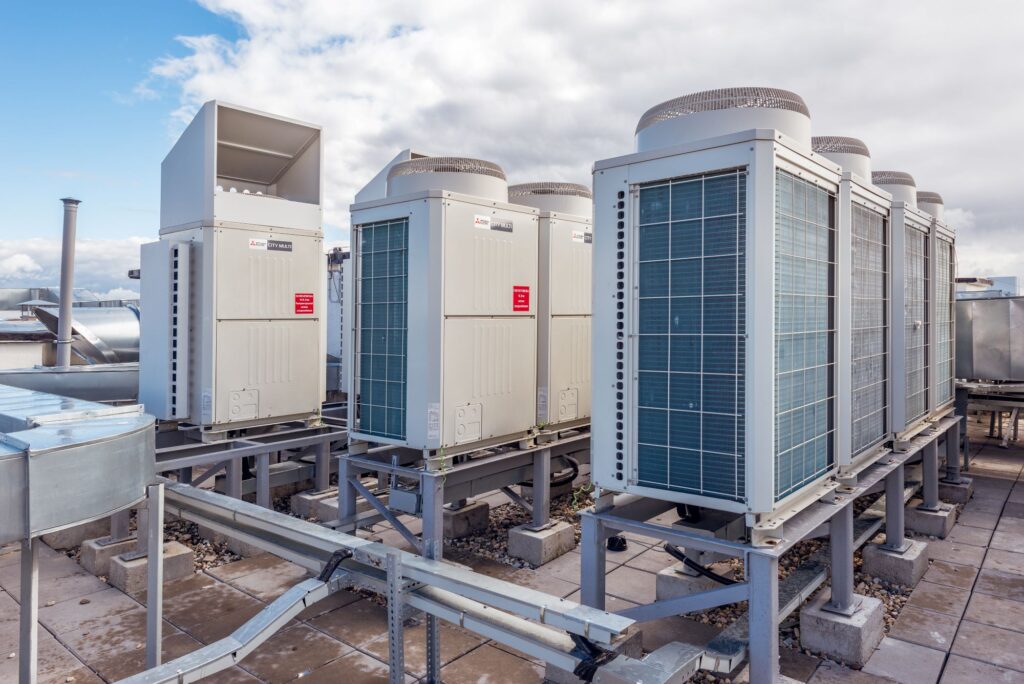
Airconditioningsystemsforuseinbuildingsaredivided into twomaintypes: unitary systems and central systems. To the first type belong window air conditioners, split air conditioners and mini-central ones. These are standard systems that constitute the lion’s share of installations in residential buildings and quite a few also in public, commercial and industrial buildings. Their cooling output usually ranges from 2-15 kW […]
Energy Forum 53: Green Building in Israel
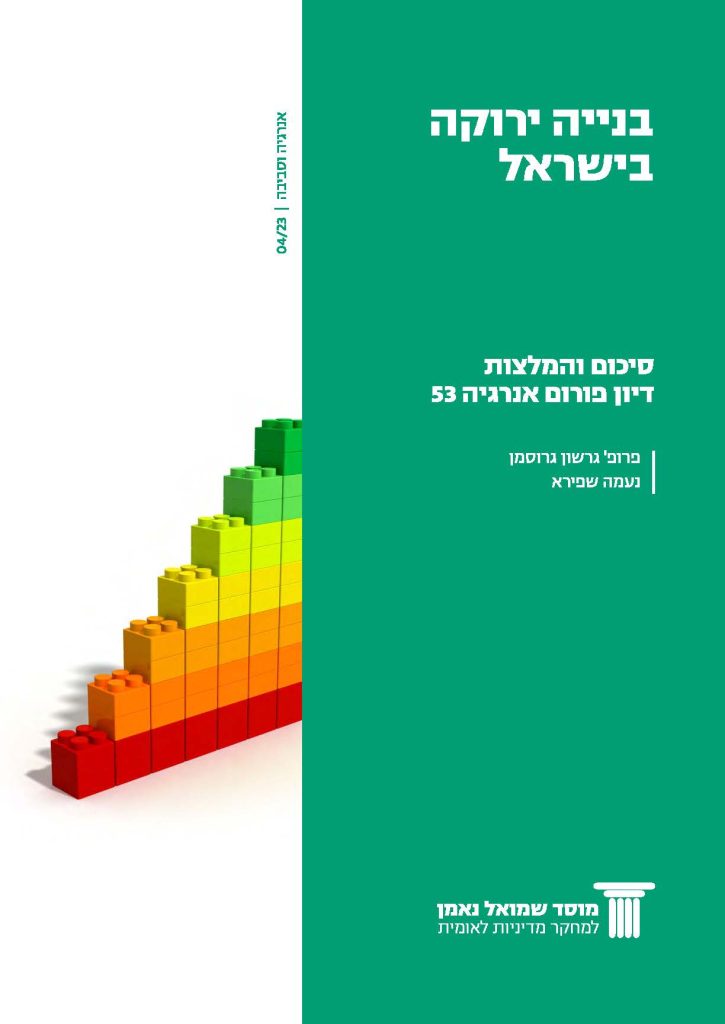
Green building, or sustainable building, is a multidisciplinary approach that seeks to use environmentally responsible and resource-efficient processes throughout the entire life cycle of the building, from choosing its location to the stages of planning, construction, operation, maintenance, renovation, and demolition. The Green Building Standard in Israel – Israeli Standard (SI) 5281 – was written […]
Energy Forum 52: A Nuclear Power Plant in Israel
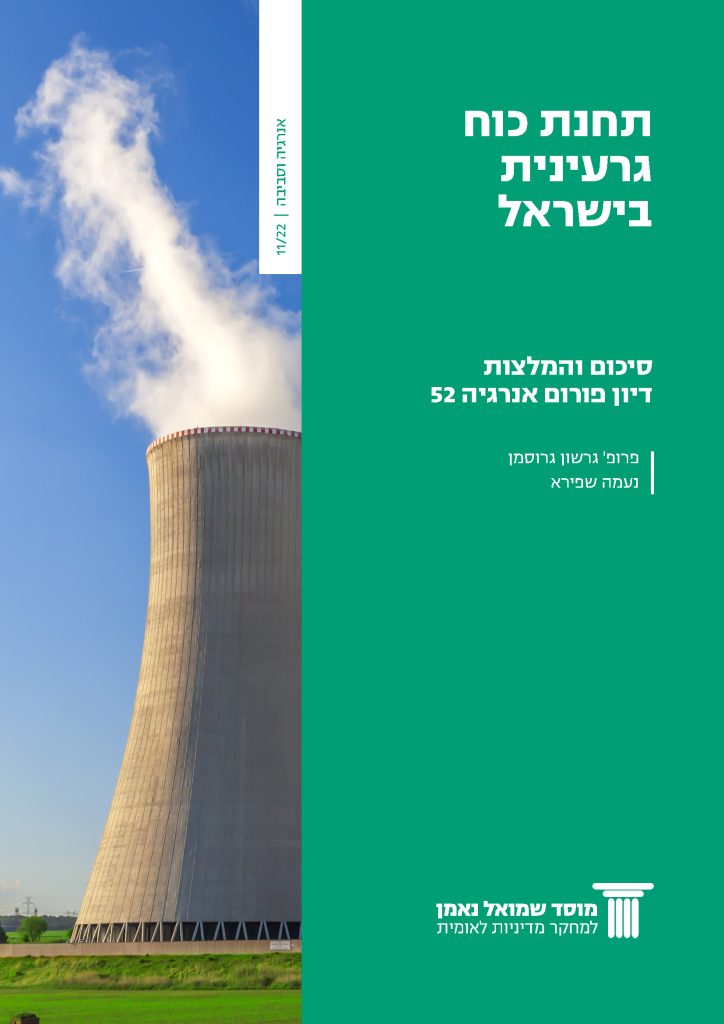
Building a nuclear power plant has been on the agenda of the energy sector in Israel since the 1970s. As part of the decision to diversify the country’s fuel mix, following the energy crisis of the October 1973 War and the oil embargo imposed on Israel and its allies, the possibility of establishing a nuclear […]
Energy Forum 51: The power grid challenge – transmission, optimal utilization of grid resources, and local production

In light of the climate crisis, global reduction targets of greenhouse gas emissions will become more ambitious over time, and the State of Israel, along with all the countries of the world, will be required to increase its targets. In October 2020, the Israeli government decided to increase the target for electricity generation from renewable […]
Energy Forum 50: Agricultural land dual-use for photovoltaic electricity
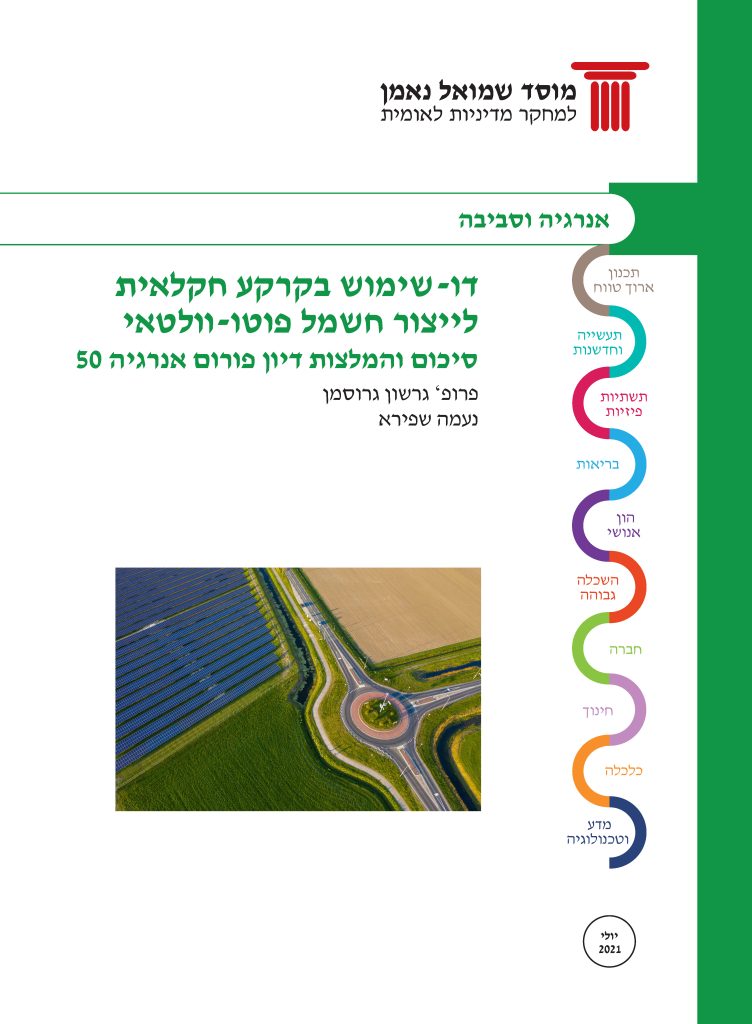
The interest in agrivoltaics has emerged following the required and massive transition to renewable energy in the face of the shortage of land. This shortage will increase in the coming years due to the consequences of the climate crisis, the desertification process, dehydration and water shortages, and the expected population growth. The land is a […]
Energy Forum 49: Integrating hydrogen into the Israeli energy sector
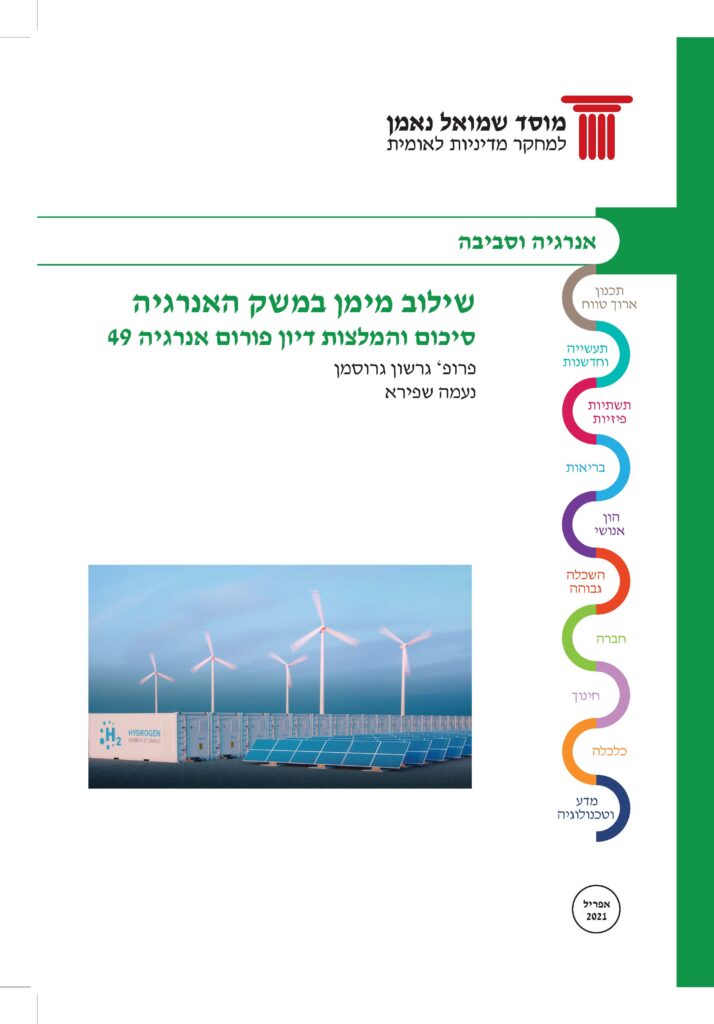
Hydrogen is the most common element in nature but rarely exists in its pure form in nature. It is possible to produce hydrogen from water through the electrolysis process by using electricity. In addition, it is possible to produce hydrogen from organic materials, such as natural gas and coal, using several methods of reforming and […]
Energy Forum 48: Energy in a Smart City
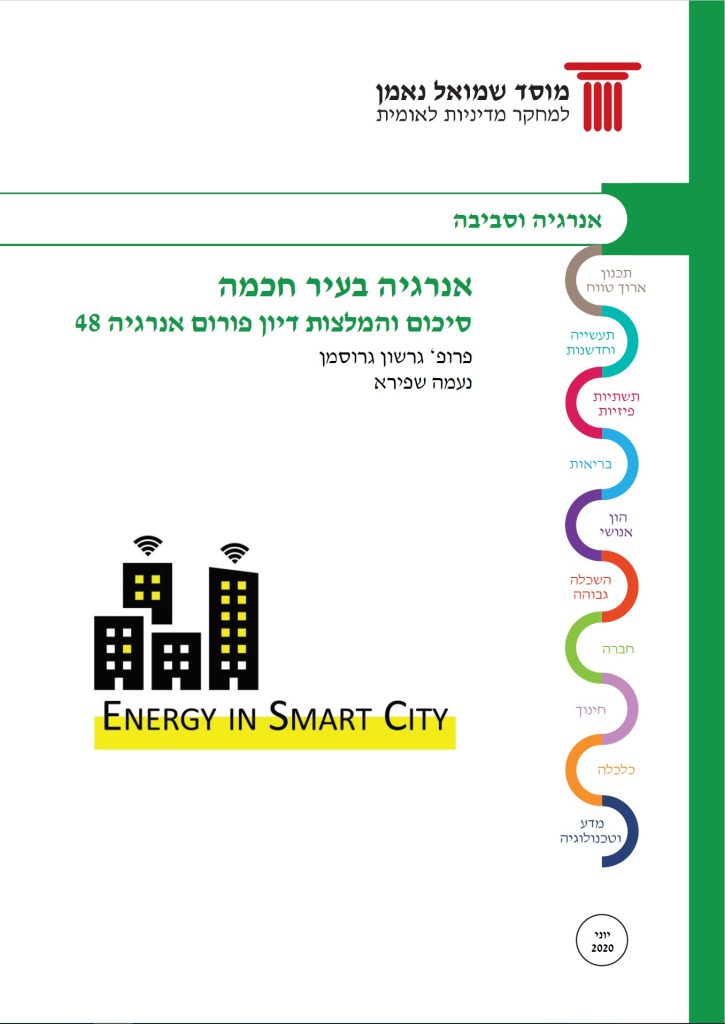
Most of the world’s population now resides in cities. By 2030, the population of the cities around the world is expected to grow from 3.3 billion to 5 billion people. In Israel, approximately 6 million residents live in urban communities. Because of resource constraints, it may become difficult to provide all the services to city […]
Energy Forum 47: Combined Photovoltaic and Storage Systems to Produce Electricity From Solar Energy
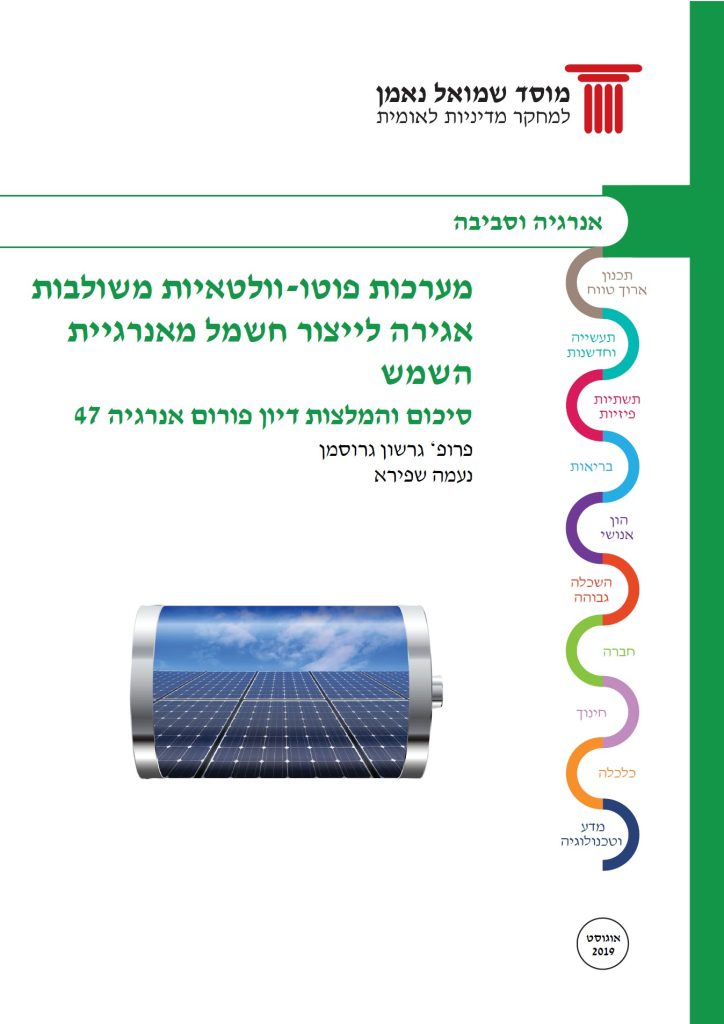
In 2018, installations providing more than 100 giga-watts of solar energy were built worldwide, and the total global capacity of this energy was higher than 500 giga-watts. This volume represents an increase of 4% as compared to 2017, in comparison with an increase of 30% and 50% in the previous two years, respectively. In 2018, […]
Energy Forum 44: Environmental, economic, and security considerations concerning the location of the gas treatment platform for the Leviathan reservoir
Abstract in English: As a result of the gas discoveries, the State of Israel has recognized the connection of offshore drilling to the shore as a national infrastructure project, and therefore, the need to implement a National Master Plan (NOP) on the subject was raised. The main conclusions of NOP 37/H “Receiving and Treatment of […]
Energy Forum 43: Breaking Israel’s energy isolation
The Israeli energy market has unique characteristics. One of its main problems is that the state is isolated from its neighbors in terms of energy supply and export, making it a kind of “energy island.” This applies to various fuels, such as natural gas, and to electricity: the state provides itself with electricity and is […]
